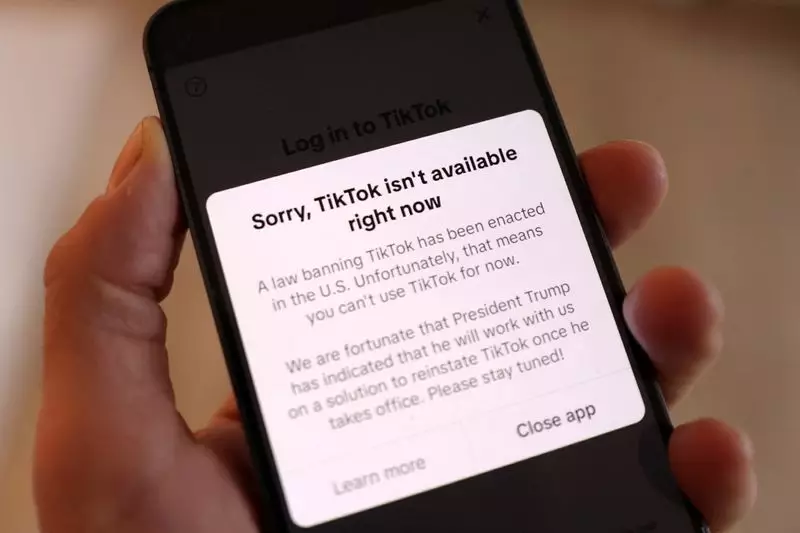As of recent reports, TikTok has not returned to the Apple and Google app stores in the United States, despite a notable executive order signed by President Donald Trump. This order postponed the enforcement of a potential ban on the widely-used video-sharing platform for 75 days. The timing of this order coincided with growing skepticism regarding TikTok’s ability to secure its future in the U.S. market, especially after the implementation of legislation demanding that its Chinese parent company, ByteDance, divest its stake or face a complete prohibition within the country.
The platform faced interruptions on Saturday, aligning with the enactment of this legislation, which raised the stakes for TikTok’s operational viability in the U.S. Following the executive order, TikTok was able to resume services but remained absent from the digital shelves of the aforementioned app stores. This delay in re-listing has provoked speculation among analysts who believe that Apple and Google are likely waiting for further legal assurances or protections before they can safely host TikTok again without risking penalties.
Legal Trappings and Company Dynamics
Both Apple and Google, two giants of the tech industry, have made it clear that TikTok is off-limits in their app stores. Apple’s messaging indicates that “TikTok and other ByteDance apps are not available in the country or region you’re in,” while Google has paused downloads citing “current U.S. legal requirements.” The silence from these major corporations, as well as from TikTok itself, regarding this ongoing dilemma only adds to the uncertainty surrounding the situation. The complex interplay of national security concerns versus technological access to popular platforms underscores the broader implications of navigating global tech tensions.
Adding another layer to the saga is the commentary from former Treasury Secretary Steven Mnuchin. He recently announced that he halted his bid for acquiring TikTok due to China’s inflexibility in negotiations but expressed continued interest in investing should circumstances change. He characterized TikTok as a “terrific business,” emphasizing the potential for a restructuring that would sever ties with ByteDance. This perspective highlights the conflicting interests of American investors and the new regulatory framework that governs their aspirations in a politically charged environment.
Changing Ownership Structures
The discourse surrounding TikTok also touches on its ownership dynamics. Bill Ford, CEO of General Atlantic, a pivotal investor in TikTok, highlighted that there are alternative avenues for altering the app’s ownership without leading to an outright sale. Notably, ByteDance is already predominantly owned (about 60%) by institutional investors, mitigating somewhat the concerns regarding foreign control. This could pave the way for potential restructuring that would align with U.S. regulations while retaining the app’s operational integrity.
The unfolding scenario presents a fascinating case study in the intersection of technology, international relations, and corporate governance. As users continue to flock to TikTok, the stakes for all stakeholders involved rise, leading to an impending showdown between concerns for national security and the drive for market accessibility. Ultimately, TikTok’s future in the U.S. hinges not only on legal maneuvers but also on the willingness of stakeholders to collaborate in overcoming the swirling challenges brought on by geopolitical tensions.

